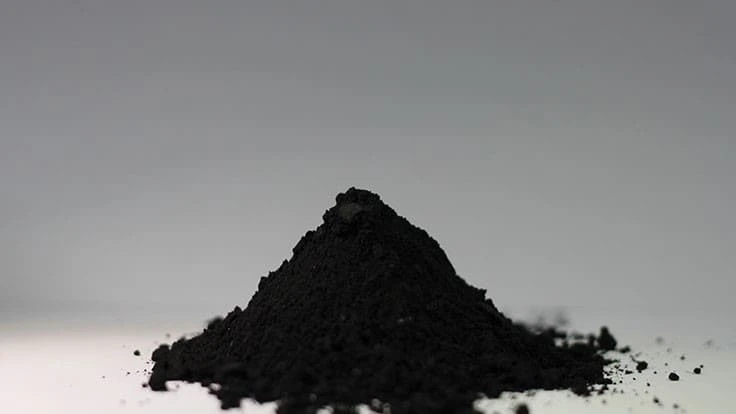
Photo from Recycling Today photo archive
Toronto-based Electra Battery Materials Corp. has announced an offtake agreement for nickel and cobalt produced from a battery recycling plant that it expects to commission in 2023 at its battery materials park north of Toronto. Under the agreement, Glencore AG, Baar, Switzerland, will purchase the nickel and cobalt products until the end of 2024 on market-based terms.
The offtake contract covers the 2023-2024 production of nickel and cobalt from the refining of black mass feed generated from lithium-ion batteries. Offtake contracts for lithium, copper and graphite are under discussion with other parties, Electra says.
"The demand for recycled battery materials is very strong but there is limited refining capacity in North America today to treat black mass with a hydrometallurgical process, the preferred route due to high metal recoveries and near-zero greenhouse gas emissions," says CEO Trent Mell. "This is another step in de-risking Electra's Battery Materials Park project. By securing an offtake for our recycled nickel and cobalt production at market rates, we can now continue to focus on construction and operational readiness for Phase 1 and Phase 2."
The company says its strategy is to partner with third parties that collect spent batteries and shred the battery cell electrodes into a metal-rich powder known as black mass. Electra has established relationships with more than 30 black mass producers and expects to work with up to four providers to supply feed to its refinery. The supply chain bottleneck in North America plays well to Electra's core competitive advantage, which is its existing hydrometallurgical refining capacity.
Electra's battery recycling strategy is in the second of a four-phase development plan for an integrated battery materials park in Canada that will recycle lithium batteries, produce cobalt and nickel from primary feeds and then send the material to a battery cathode precursor manufacturer that would co-locate within the same industrial park.
The commissioning of Electra’s cobalt sulfate refinery is the first phase, which is scheduled to be commissioned in December 2022.
Electra plans to operate a battery recycling demonstration plant in 2022 using existing equipment for CA$3 million ($2.3 million) and commission the commercial plant in 2023. The company says its hydrometallurgical refinery is expected to provide higher yields at a lower cost and at significantly lower energy intensity, compared to traditional facilities.
The first recycling module (Module 1) is expected to produce more than 2,000 metric tons annually of mixed hydroxide precipitate from approximately 4,500 tons of black mass. This is the equivalent of recycling batteries from more than 20,000 full electric vehicles per year or 80,000 plug-in hybrid electric vehicles. Module 1 is one of several modules that are expected to be constructed over the next decade, as Electra's recycling capacity grows with market demand for the processing of black mass.
Electra says its long-term objective is to feed cobalt and nickel content in mixed hydroxide precipitate into its cobalt and nickel sulfate circuits. Glencore's Nikkelverk refinery in Norway represents a near-term and low-carbon solution to a circular economy until Electra has completed its Phase 3 construction of a nickel sulfate plant.
Latest from Recycling Today
- AF&PA report shows decrease in packaging paper shipments
- GreenMantra names new CEO
- Agilyx says Styrenyx technology reduces carbon footprint in styrene production
- SABIC’s Trucircle PE used for greenhouse roofing
- Hydro to add wire rod casthouse in Norway
- Hindalco to invest in copper, aluminum business in India
- Recycled steel price crosses $500 per ton threshold
- Smithers report looks at PCR plastic’s near-term prospects





